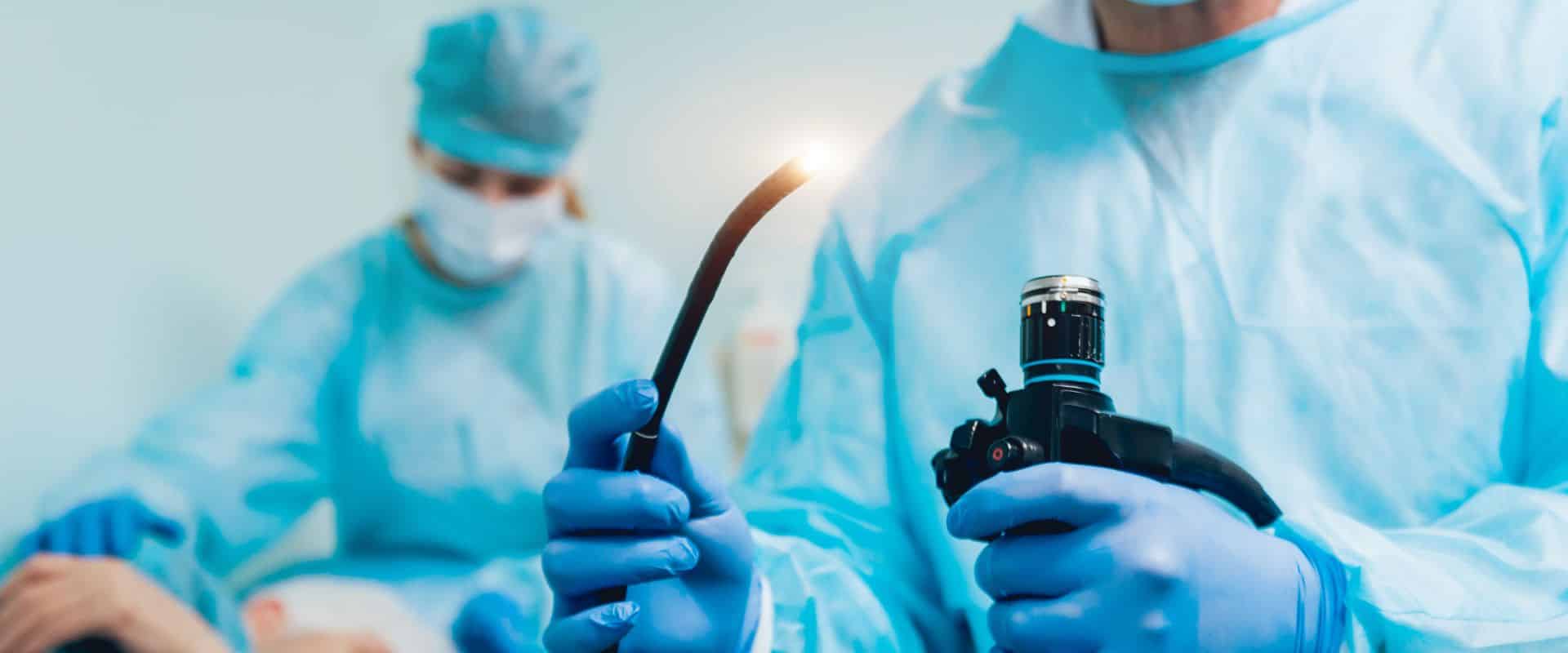What is a faecal immunochemical test?
The faecal immunochemical test (FIT), also known as an immunoassay faecal occult blood test, serves as a crucial screening tool for detecting colon cancer by identifying occult blood in the stool—a potential early indicator of the disease. Specifically designed to detect human blood in the lower intestines, FIT offers a high level of accuracy and minimises false positives. Notably, the test remains unaffected by medications and dietary factors, further enhancing its reliability as a preferred screening method for colon cancer.
The primary purpose is to detect the presence of hidden blood in the stool, which can be indicative of early-stage colon cancer or other gastrointestinal issues. By identifying occult blood in the lower intestines, FIT serves as a non-invasive and effective screening tool for assessing the risk of colon cancer.
Early detection through tests like FIT can contribute to timely interventions and improved outcomes in the management of colorectal diseases. It is important to note that FIT is not a diagnostic test but rather a screening tool, and individuals with positive results typically undergo further diagnostic evaluations, such as a colonoscopy, for a conclusive diagnosis.
How to prepare for a faecal immunochemical test?
Manage your diet
While FIT is less likely to be affected by dietary factors, some healthcare providers may recommend avoiding certain foods, supplements, or medications that could potentially influence test results.
Inform your doctor
Inform your healthcare provider about any ongoing medical conditions, medications, or dietary supplements you are taking. This information can help ensure an accurate interpretation of the test results.
Collect the stool sample
FITs are performed at home and will include instructions. The steps involve collecting a small sample of your stool using a provided brush and test card and following the instructions for accuracy.
Ensure proper storage
Follow the recommended storage instructions for the stool sample. This may involve keeping the sample in a specific container or bag provided in the kit until it is sent to the laboratory for examination
Submit on time
Once you’ve collected the stool sample, promptly send it to the designated laboratory as per the instructions. Timely submission is crucial to ensure you obtain an accurate and reliable base of results.
Get follow-up instructions
Your healthcare provider may provide specific instructions based on the results. If the test indicates blood in the stool, further diagnostic evaluations, such as a colonoscopy, may be recommended.
Always consult your healthcare provider for personalised advice and to ensure you’re following the appropriate steps for your specific situation.
How to conduct a faecal immunochemical test
To conduct the colon cancer screening test at home, you’ll receive a kit with detailed instructions.
Typically, the procedure involves the following steps:

Before passing bowel movements, flush the toilet.

Dispose of used toilet paper in the provided waste bag—do not discard it in the toilet bowl

Utilise the brush provided in the kit to gently brush the surface of the stool, then dip the brush into the toilet water.

Touch the brush onto the designated area on the test card.

Place the used brush into the waste bag and discard it.

Send the stool sample to the designated laboratory for analysis.
Depending on your healthcare provider’s recommendations, you may need to test multiple stool samples before sending them in for evaluation.
What are the benefits of an immunoassay faecal occult blood test?
An immunoassay faecal occult blood test is a non-invasive screening test and the actual process of collecting the stool sample should not cause discomfort.
At-home collection: FIT is often done in the comfort of your home and typically involves using a brush provided in the kit to collect a small sample of your stool.
No physical discomfort: The collection itself is not physically uncomfortable. You may feel a slight sensation from using the brush, but it should not be painful.
Self-administered: Since the test is designed for at-home use, you have control over the process and can follow the given instructions at your own pace, comfortably.
Private and convenient: The privacy of the at-home setting adds to the convenience of taking this test. You can perform the collection effectively and discreetly.
The test collection is generally straightforward and painless, and any anxiety or concerns you may have about the process can be discussed with your healthcare provider. They can provide additional information, address any questions you might have, and offer support to ensure you are comfortable with the procedure. Remember that the primary goal of FIT is to provide an effective and convenient means of screening for colon cancer.

What do the results of an immunoassay faecal occult blood test mean?
The results of the test indicate whether blood is present in the stool, which can be a potential sign of various gastrointestinal conditions, including colorectal cancer. The results are typically reported as either positive or negative.
Negative result:
A negative result means that no blood was detected in the stool sample. This is generally reassuring and suggests that there are no apparent signs of bleeding from the lower gastrointestinal tract at the time the test was taken
Positive result
A positive result indicates the presence of blood in the stool. But a positive FIT does not necessarily mean you have colorectal cancer. Other factors, such as haemorrhoids and gastrointestinal bleeding, can also cause blood in the stool
Further diagnostic tests, often a colonoscopy, are typically recommended to investigate the cause of the positive result. It’s crucial to discuss the results with your healthcare provider, who can provide appropriate guidance based on your individual health history and the specific findings of the FIT. Regular screening and prompt follow-up with your healthcare provider are essential for effective colorectal cancer prevention and early detection.
What is the recovery period of an immunoassay faecal occult blood test?
An immunoassay faecal occult blood test does not involve a recovery process, as it is a non-invasive screening test conducted at home. The collection of the stool sample is generally straightforward, and there’s no need for recovery or downtime.
However, if the FIT results indicate the presence of blood in the stool, further diagnostic procedures, such as a colonoscopy, may be recommended by your healthcare provider. The experience and recovery from a colonoscopy can vary from person to person.
Colonoscopy preparation
You may need to follow a specific diet and undergo bowel preparation, which involves taking a laxative to cleanse the colon. This phase might cause some temporary discomfort due to increased bowel movements.
Procedure
The colonoscopy itself is usually performed under sedation to ensure you’re comfortable. The procedure involves a flexible tube with a camera (colonoscope) being inserted into the rectum to examine the entire colon.
Recovery
You will be monitored in a recovery area until the effects of sedation wear off. You might experience some bloating, gas, or mild discomfort initially. However, these symptoms typically subside relatively quickly.
Return to form
Most people can resume their normal activities the day after the colonoscopy. However, it is advisable to arrange for someone to drive you home and keep an eye on you after the procedure if sedation is used.
Recovery experiences can vary and it’s essential to follow any specific post-procedure instructions provided by your healthcare provider. If you have concerns or questions about the recovery process, discuss them with your healthcare team for personalised guidance.
FAQs

The FIT screens for hidden blood in the stool, detecting early signs of colorectal cancer or other gastrointestinal issues.
A positive FIT result indicates the presence of blood in the stool, suggesting potential issues such as colorectal cancer or other gastrointestinal conditions. Further evaluation, often a colonoscopy, is typically recommended for a definitive diagnosis.
The FIT test is a non-invasive initial screening for colorectal cancer, while a colonoscopy is more comprehensive and diagnostic, detecting and treating issues directly. They serve different purposes; colonoscopy remains the gold standard for thorough examination.
Speak to a specialist about getting an immunoassay faecal occult blood test
Taking proactive steps to safeguard your well-being through preventive measures is a smart choice. Seeking timely medical advice is pivotal in ensuring and enhancing your overall health.
Schedule a consultation to proactively address and manage your gastrointestinal health. Prioritise your well-being by receiving personalised care from a highly experienced specialist. If you’re concerned about your gut health and are wondering when you would require a bowel cancer screening or colonoscopy, book a consultation with Dr Suhirdan Vivekanandarajah today.
